Bardet reflects on tough learning curve in Vuelta a Espana
Frenchman not ruling out return to Spanish Grand Tour
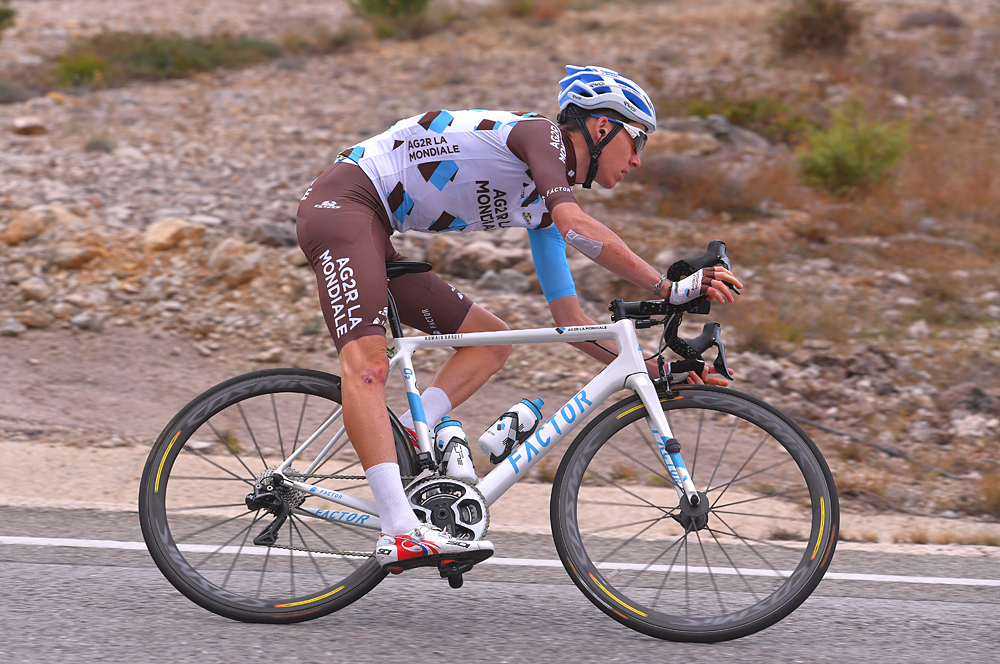
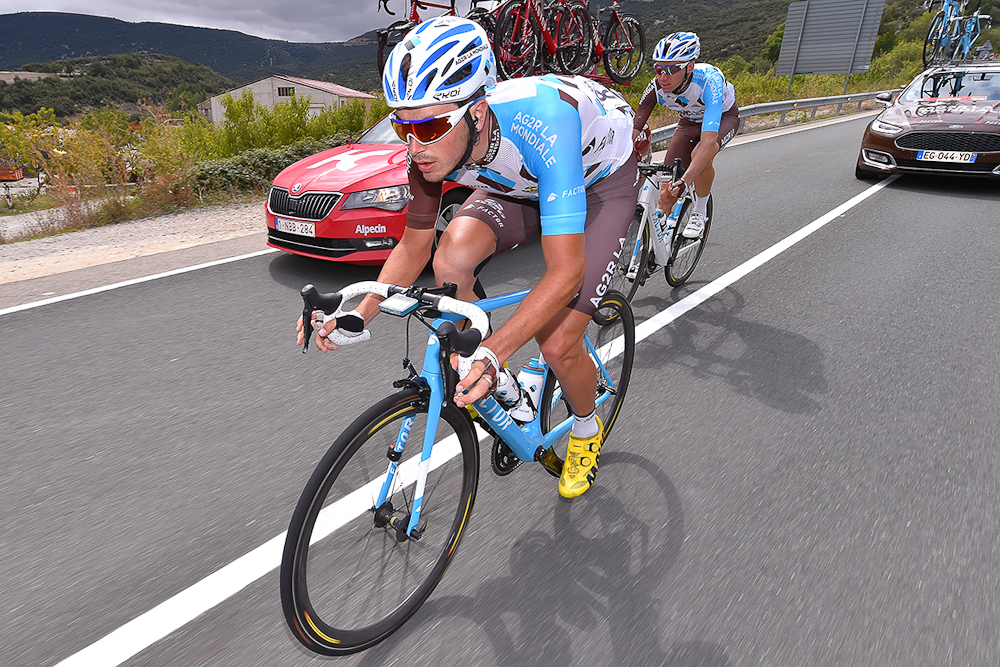
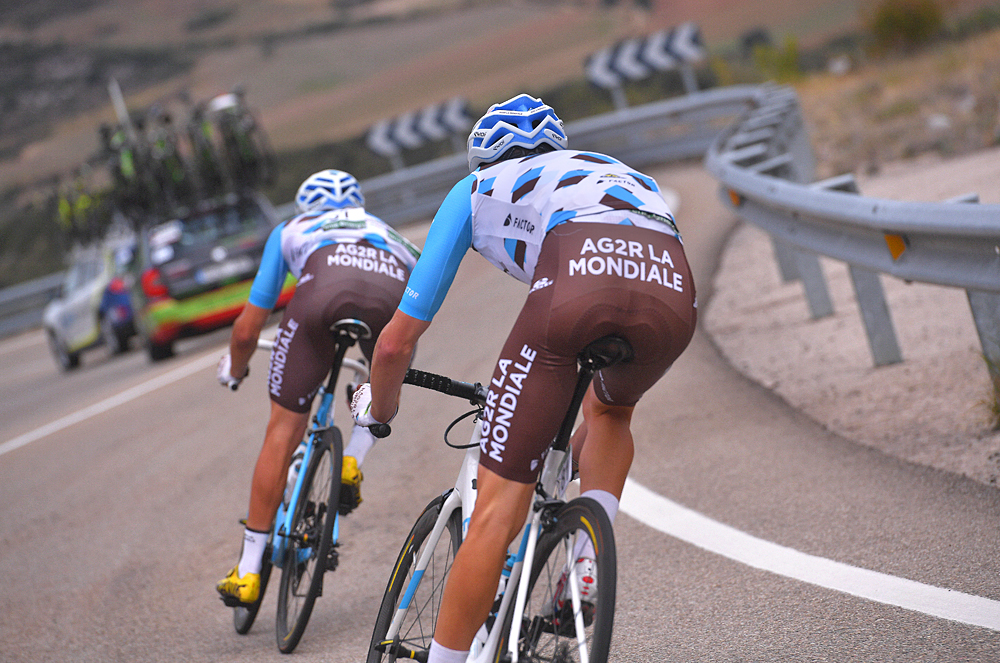
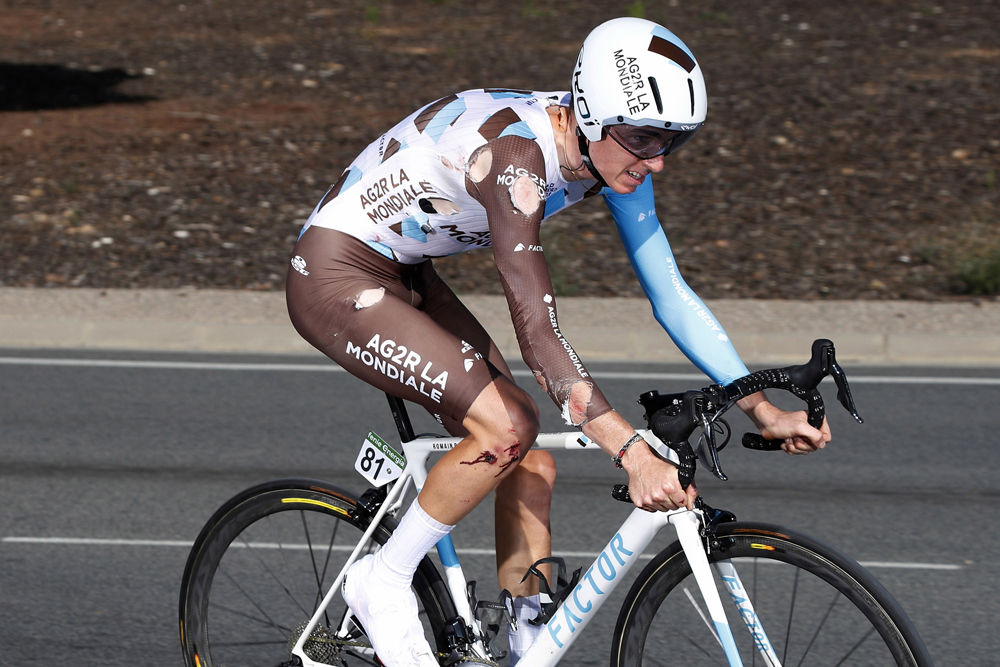
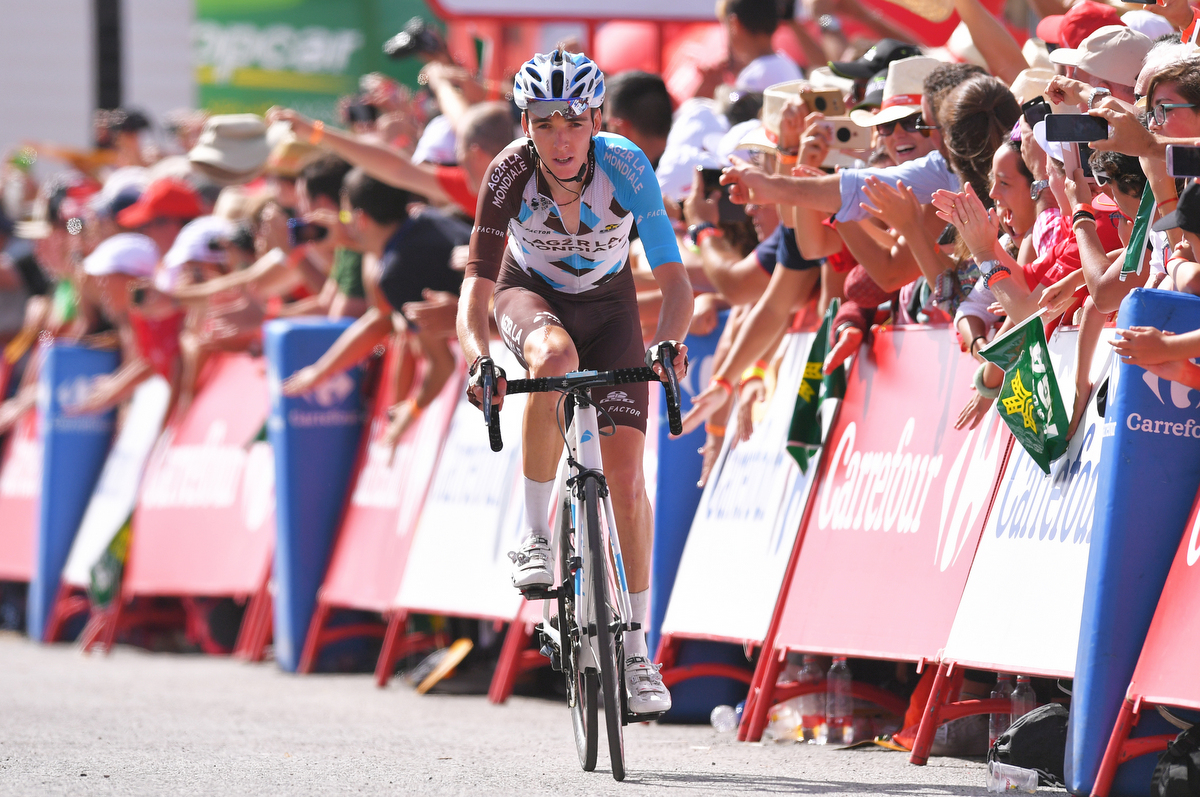
Romain Bardet (AG2R La Mondiale) smiles a little wryly when he is asked to evaluate how his first ever Vuelta a España has worked out for him, given that it's been a long, difficult learning curve since he and the race left Nimes nearly three weeks ago.
Bardet has been in some good mountain breaks, like on the stage to Calar Alto, where he placed fifth as well as a fourth place in Andorra la Vella. He was also with Alberto Contador's long-distance move to Sierra Nevada.
But the possibility of a GC bid, touted by team manager Vincent Lavenu to Cyclingnews at Nimes, evaporated before the end of the first week and Bardet, having crashed in the time trial in Logroño, is now 19th overall.
The possibility of a stage win remains in the last two days of mountain climbing, but Julien Jurdie's observation of "where there's life, there's hope," when asked how he rates Bardet's chances of success, does not sound overly gung-ho.
Third in the Tour de France, Bardet gives his usual articulate, detailed kind of response to how he believes he's got on in his first ever Vuelta a España, and admits that he perhaps had underestimated the difficulty of the race. However, in his defence, given he didn't know what he was letting himself in for, that's hardly to be considered an error on his part; this was a voyage in the dark and his big goal, as he said beforehand, was more .
"I don't want to hide anything. It's been a really hard experience, because maybe I wasn't prepared for that," Bardet told Cyclingnews at the start of stage 18. "It's my first ever Vuelta and I didn't know exactly how good I can be after the Tour.
"It's pretty hard mentally to fight every day at the Vuelta. But for sure physically I'm not at 100 percent, but I'm not too bad. But to be good at the Vuelta you have to focus 100 percent like some guys did over the summer. But when you do the Tour at 100 percent, it's hard to be in that kind of shape at the Vuelta. But you know, it's been a good experience and that it'll count for the years to come."
Get The Leadout Newsletter
The latest race content, interviews, features, reviews and expert buying guides, direct to your inbox!
The anarchic, unpredictable nature of the Vuelta is something mountain specialists often relish, and Bardet does say that he enjoys the style of racing in la Vuelta.
"For sure, but every day you have to go 100 percent on each climb and you have to be really prepared for that," he said. "I would like to come back, but I would have to do some adjustments. I do a lot of racing during the spring and you don't have the energy and the freshness to be at your best here.
"But if you can maybe have an easier spring, just focus on both Tour and the Vuelta, it's possible to do both at a good level," he said. "But it's been good to be here to see what it's like. It's another experience."
However, the plan after the Vuelta is not to continue through to Il Lombardia as he did in 2016, taking a fourth in the Italian Monument after being in the battle right up to the last climb.
"I will now be looking," he says, "at getting some rest and preparing for next season. I prefer to stop, it's been a long year for me and it's one month away."
Nor yet is the Vuelta over and he certainly doesn't rule out going for a stage win between here and Madrid.
"It's not easy to get in breaks here, but" - presumably because he is too big an overall threat in other stage races - "I have the freedom to go in the early moves here, which I don't get in other events. So for sure I will try and do it."
Alasdair Fotheringham has been reporting on cycling since 1991. He has covered every Tour de France since 1992 bar one, as well as numerous other bike races of all shapes and sizes, ranging from the Olympic Games in 2008 to the now sadly defunct Subida a Urkiola hill climb in Spain. As well as working for Cyclingnews, he has also written for The Independent, The Guardian, ProCycling, The Express and Reuters.
